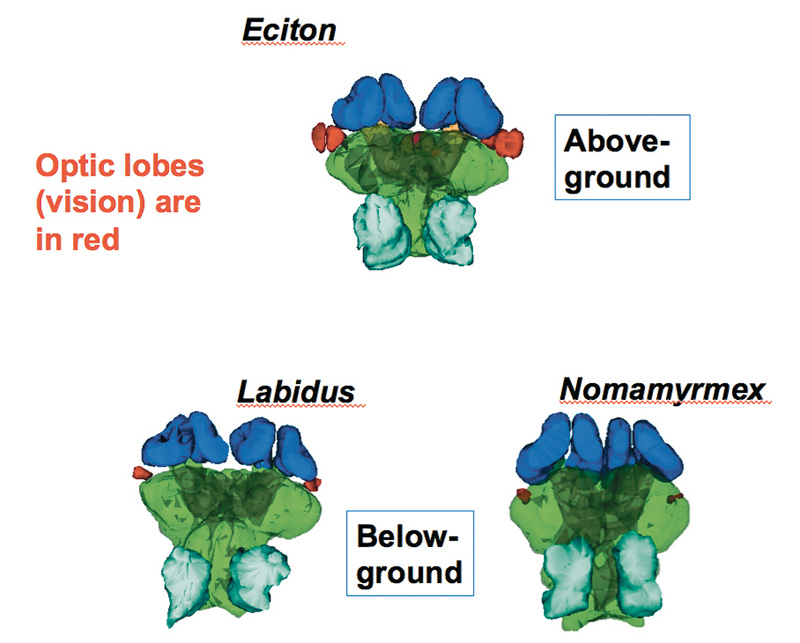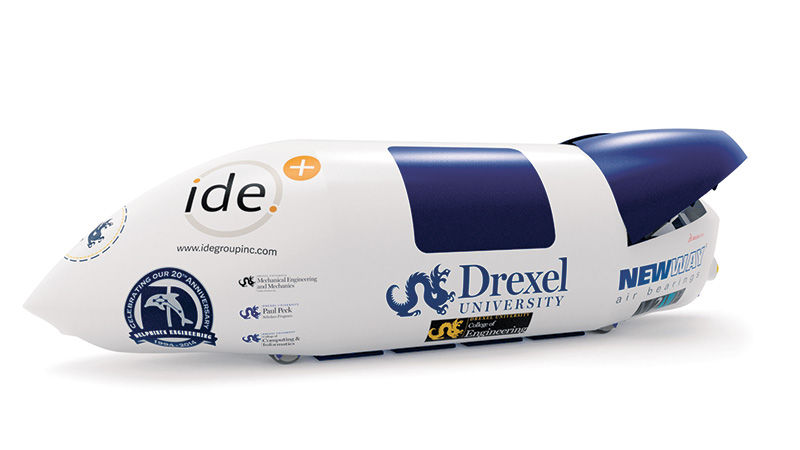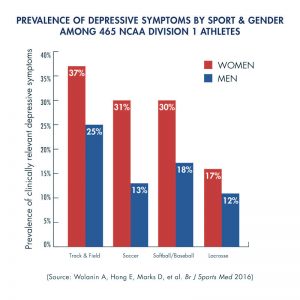Drexel Eyes on SEPTA
Philadelphia’s Southeastern Pennsylvania Transportation Authority launched an initiative this year to equip its transit police officers with body cameras, in an effort to strengthen relationships with the public and collect evidence for investigations. Drexel criminology professor Jordan Hyatt has been tapped to evaluate the program’s success. The team will examine the impact of the camera program on some key measures, including crime in the system, complaints against officers and use of force. They also will study officer attitudes toward use of the body cameras and public perception. The results will be presented this fall.
Seeing the Light
A change to a more challenging environment could, over time, re-ignite and grow old parts of the brain that have gone inactive, according to a study of army ants led by Drexel biology professor Sean O’Donnell. He studied several groups of related species of tropical army ants whose ancestors moved to living mostly underground almost 80 million years ago. The army ant species that continued to live underground appeared to have lost most, if not all, of their vision, but the genus Eciton appeared to gain back sight after returning to live on the surface about 18 million years ago. The study shows that “brains closely track animal species’ ecology, and that brain evolution can respond to new ecological challenges even after tens of millions of years,” says O’Donnell.
Asthma Drugs Linked to Higher Risk of Autism
Children of mothers who took a certain asthma medication during pregnancy were 30 percent more likely to be eventually diagnosed with autism spectrum disorder, Drexel public health researchers have found. After studying a decade of birth records from Denmark, the team concluded that children whose mothers took (B2AR) agonist drugs such as Advair, Symbicort or Dulera during pregnancy were at greater risk, since these drugs can cross the placenta and affect the fetus’ developing neurons.
Race Toward the Future
A team of 70 Drexel engineering undergraduates is working its way into the lead in the race to design a transportation pod for SpaceX’s high-speed Hyperloop transit test track. After nods from SpaceX Founder Elon Musk and success at Hyperloop Design weekend at Texas A&M University earlier this year, the Drexel Hyperloop team is one of 31 that will build a prototype of the bullet-like capsule that would hold passengers in Musk’s visionary transit system. As you read this, the team is hard at work in the College of Engineering’s new Innovation Space at 3101 Market St., making their pod concept a reality. The pod will have its moment in the sun — and on the test track — this summer.
Feeling Blue
Jocks are just as likely as anyone else to feel down, a new Drexel study has found. Nearly a quarter of Division I college athletes reported symptoms of depression while enrolled at a liberal arts university on the East Coast, with women almost two times more likely to experience symptoms than their male peers. Researchers at Drexel and Kean University collected data over three consecutive years from 465 undergraduate athletes who attended a NCAA Division I private university. The multi-year sample across nine different sports is one of the largest to date used to look at depression in college athletes.






